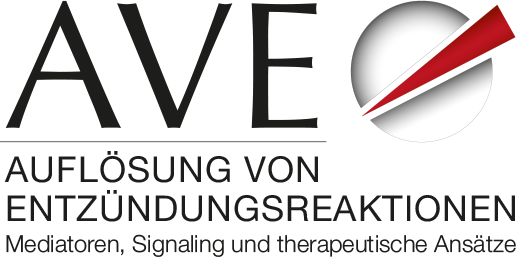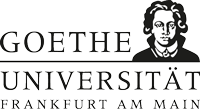Seminars:
Every 2nd month
The graduate students organise a seminar series that takes place every second month. During the first year (seminar series 1) PhD students invite speakers, known for their contributions towards the topic “resolution of inflammation”. These seminars are followed by a student’s lunch (discussion round of guest and students only). Within these discussions the students may ask scientific, but also non-scientific questions f.e. concerning career and career paths, structure of research and academia in other countries or similar. In the second and third year (seminar series 2) PhD students not only invite external guest speakers but also deliver short presentations of their own work in separate events (once per year) as progress reports, but also as presentation training. The students present the ongoing of their project and it is dicussed scientifically with all members of the GRK. They also get feedback concerning the structure and style of the talk (during the discussion, but also with anonymous feedback forms).
Lectures:
1st year, every 2nd week
During the first year of the educational program a special lecture series on topics related to resolution of inflammation will be organised, to provide a comprehensive overview of inflammatory pathways and its resolution. Thereby lectures given by the PIs touch on the different clusters of AVE and set the ground for the experimental work carried out by the PhD students. 26 individual lectures, each lasting 45 minutes, start with an introduction to inflammation, principals of innate and adaptive immunity, distinct forms of cell death, the relevance of endothelial and epithelial barriers, move to different forms of in vitro and in vivo inflammatory models, explain distinct signalling pathways and mediators being involved and address clinical symptoms of inflammation as well as therapeutic strategies.
Subjects:- An introduction to inflammation and its resolution
- Macrophage polarization in inflammation and its resolution
- Principles of innate immunity
- Principles of adaptive immunity
- The impact of cell death on immunity
- Cancer and the resolution of inflammation
- Inflammation at endothelial barriers
- Pharmacology of classical anti-inflammatory drugs
- Inflammation at epithelial barriers
- Inflammatory diseases and models: Colitis
- NF-κB family proteins in inflammation and its resolution
- Innovative drugs for treating chronic inflammation
- Specialized pro-resolving lipid mediators
- New pharmacological strategies for resolution of inflammation
- Eicosanoids in inflammation and its resolution
- Inflammatory diseases and models: Atherosclerosis
- Cytokines in inflammation and its resolution
- Inflammatory diseases and models: Hepatitis
- Mast cells in inflammation and its resolution
- Inflammatory diseases and models: Peritonitis
- ROS in inflammation and its resolution
- Epigenetics of immunity and the resolution of inflammation
- Translational regulation of inflammation and its resolution
- Systems biology approaches to characterize inflammation
- Inflammatory diseases and models: Psoriasis
- Inflammatory diseases and models: Arthritis
Cluster Meetings:
Every month
Once a month the PhD students of each cluster will meet exclusively among themselves to discuss project related questions. Organisation and documentation of these meetings is the responsibility of the PhD students.
Workshops:
6 workshops/ three years
The graduate school members will attend six courses during their 3-year lasting PhD program, which comprises mandatory and elective courses. Workshops are either organised specifically for the PhD candidates or can be chosen from the various offers provided by GRADE (more).
The following list contains a selection of courses organised within AVE:
- Project management
- Teamwork and presentation skills
- Statistics
- Research Data Management (FDM)
- Ethical standards
- Career planning
- Elective courses
It is the intention that several courses are taken within the first year of the PhD education in order to provide basic skills for each person to guarantee a high success rate of their work.
Methods Internships:
Once a year
At least 3 courses during the entire PhD period are mandatory. It is the intention to provide insights in cutting edge scientific methodology, providing some ideas/overview how these methods are integrated into individual projects.
A list of potential courses is displayed below:
- LC-MS/MS
- Proteomics
- Cell-Sorting
- FACS
- PhenOptics
- MELK
- NGS
- Migration assays
- Microscopy
- 3D-Cellculture
- Life Cell Imaging
Summer School:
3 days/ once a year
Summer schools take place once a year, lasting 3 days. During summer schools a special educational program will be provided and may comprise guided poster presentations, not only discussing scientific content of each individual project but also giving feedback to presentation standards and poster composition. In addition, there will be teaching courses on abstract writing, paper analysis, and workshops toward project development. During these international summer schools PhD students have the possibility to exchange ideas at an international level with students from Italy and Sweden.



